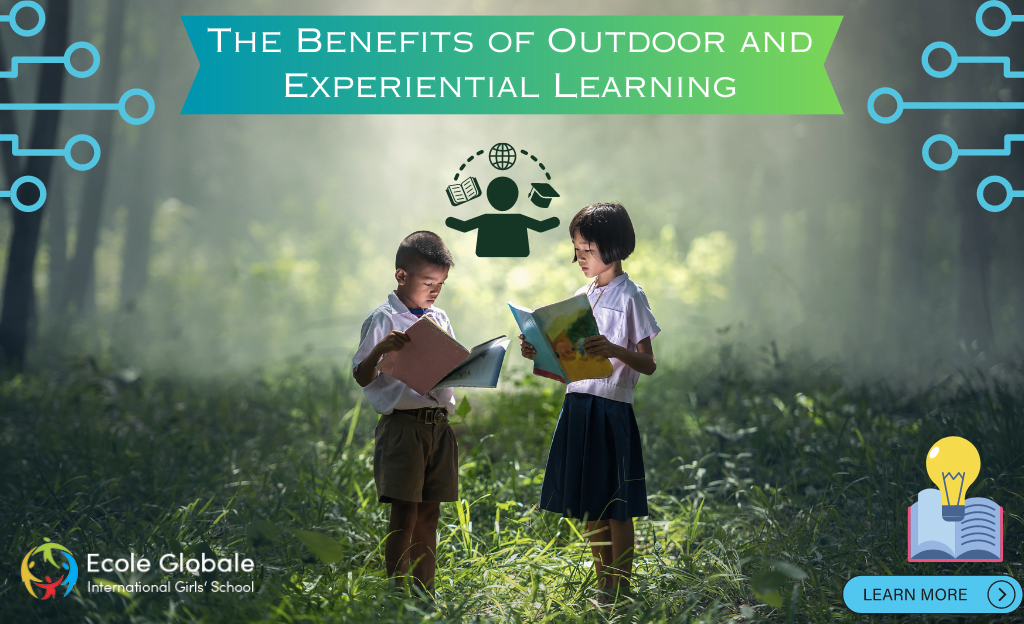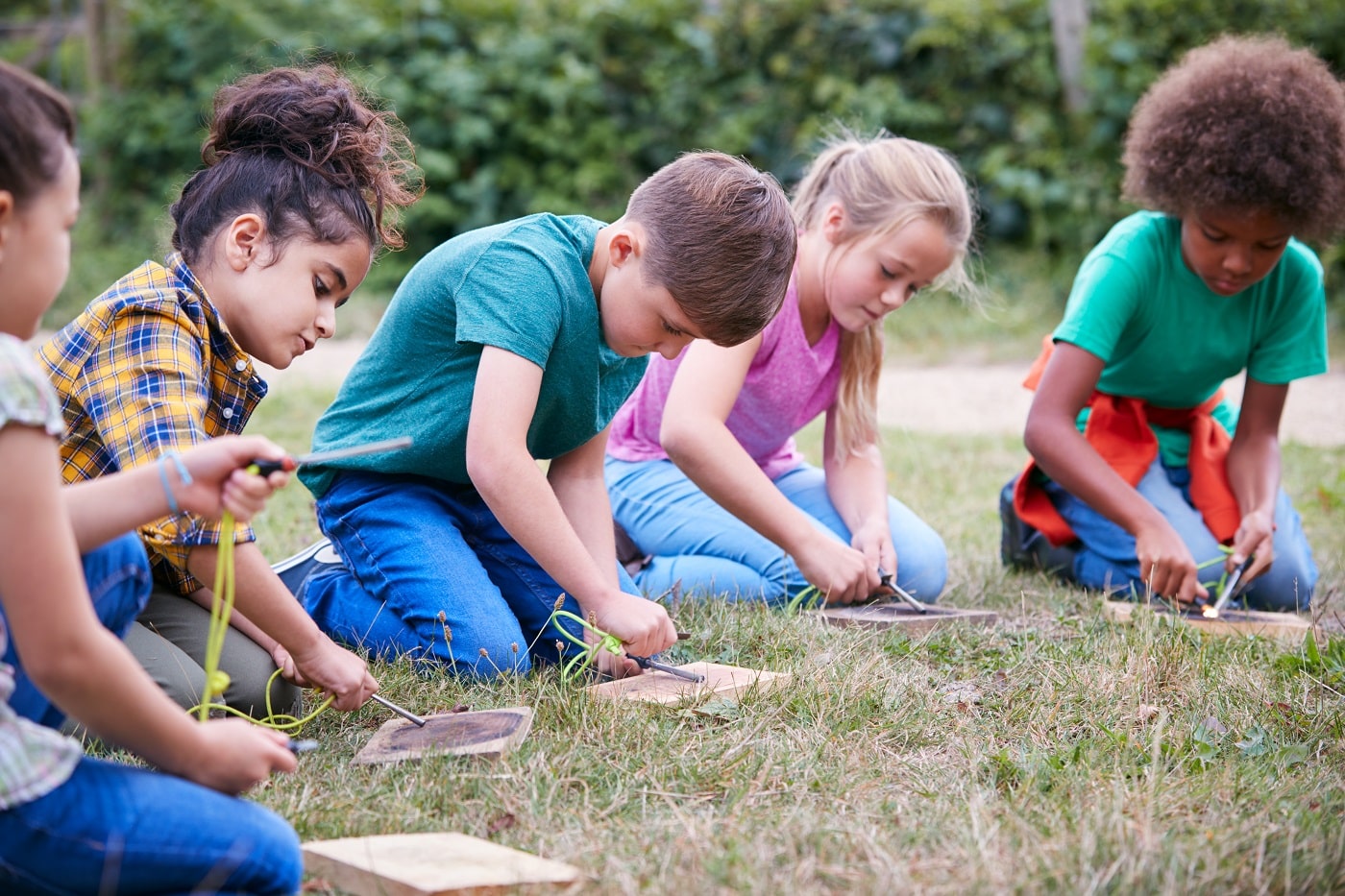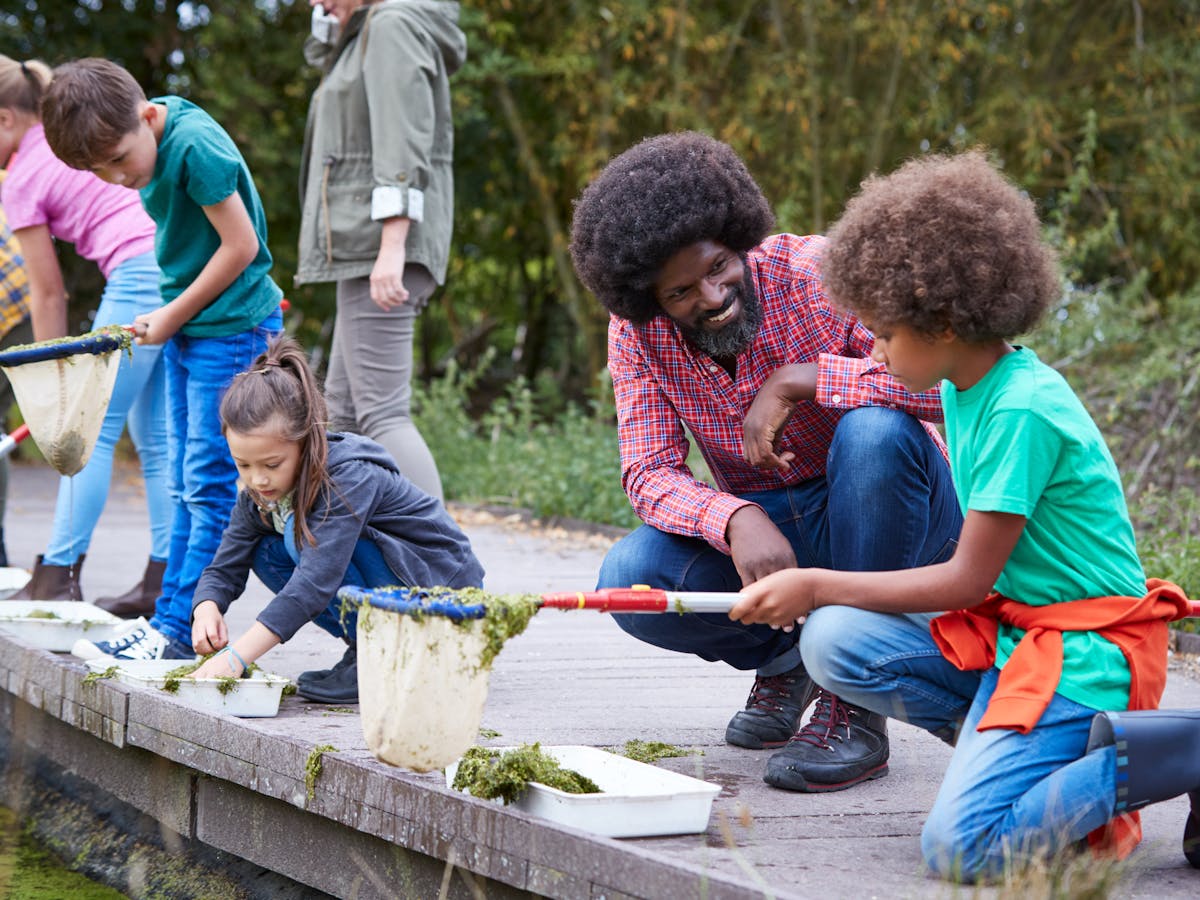You would all agree that there is a lot of pressure on children within the school system to get good grades and do well in their exams. We should encourage young people to get outside and enjoy what nature and practical experiences can teach.
Outside of the classroom, there are lots of environments that can provide children with stimulating experiences. In today’s increasingly digital world, outdoor and experiential learning is a growing movement toward getting students up and out of the classroom. We will look at the benefits of outdoor and experiential learning compared to traditional classroom learning. It is no secret that many schools have adopted this pedagogy as it has been shown to improve student performance and provide many other benefits.
If you’re looking for a way to get your students’ outdoor and experiential learning, tested in new environments, and make learning relevant to their lives, you may want to consider some outdoor learning activities.
The benefits of outdoor and experiential learning are seen in many areas of child development
In the last several decades, there has been a decline in the amount of time children spend outside.
Studies show that children who learn through exploration have improved problem-solving skills and more confidence.
Engaging in physical activity helps kids’ attention span. Learning outside the classroom is one of the best ways to get kids excited about learning. The benefits of outdoor and experiential learning are obvious: it gets kids away from screens and into nature, which helps them focus better, feel happier and healthier, and understand the world around them better.
Children who spend time outdoors tend to be more creative and develop stronger imagination skills.
Building principles of teamwork and collaboration are outcomes of outdoor and experiential learning
In addition to these benefits, outdoor and experiential learning can provide students with opportunities to develop their leadership skills through teamwork and cooperation while they work together on projects or tasks related to their coursework or personal interests. It is also an excellent way to encourage environmental stewardship: the desire to take care of our natural resources and steward them responsibly for future generations.
According to Boarding Schools in India, Outdoor and experiential learning can help students develop a sense of responsibility and independence. It also helps them learn how to interact well with others in different settings. It can be especially beneficial for students who are shy or insecure about their abilities because it allows them to step out of their comfort zone and try something new or challenging.
Kids who participate in outdoor and experiential learning activities tend to have better social skills than those who don’t participate or only occasionally. Spending time outside with friends helps kids develop teamwork skills, problem-solving
Outdoor and experiential learning benefits cognitive development
Students who participate in hands-on activities are more likely to develop these important cognitive skills than those who don’t participate in hands-on activities. For example, students who participate in field trips or projects involving problem-solving demonstrate better critical thinking skills than students who do not.
Children who spend more time outside are better at solving problems, reading social cues, and reasoning abstractly. It is because being outdoors helps stimulate the brain through all five senses, including touch, smell, sight, and hearing. Learning through play encourages creativity and imagination which are essential parts of a child’s development
Outdoor and experiential learning is beneficial for physical development
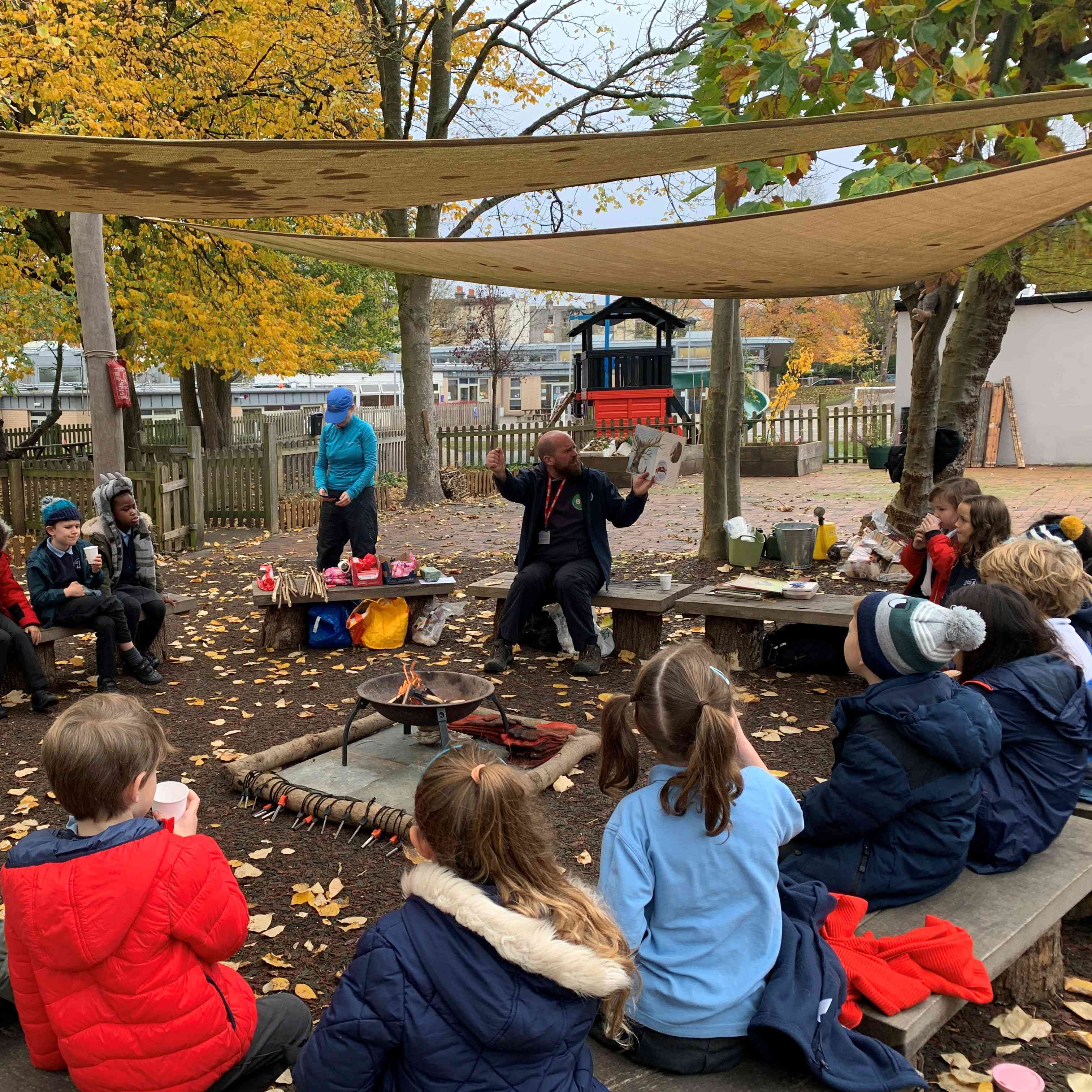
As per research conducted by Schools in India, Learning outside can improve your health in many ways. It encourages exercise, which helps reduce stress and boost your mood — and we all know that exercise is one of the best things you can do for your health. Developing lifelong physical activity habits at an early age. Children who participate in outdoor and experiential learning environments tend to be more active as adults than those who don’t engage in outdoor activities during their childhood— which is important for preventing obesity later on in life!
Outdoor and experiential learning boosts social and emotional development
Exposure to nature has been shown to have positive effects on children’s physical and mental health, too. Studies have found that kids who spend time outdoors have better sleep habits and fewer behavioral problems than those who don’t get outside often.
Children learn about themselves through outdoor and experiential learning activities- about their strengths, weaknesses, and interests by participating in these activities.
Nature-based learning creates a foundation for academic success

But there’s another benefit to getting excited about:
outdoor and experiential learning is also an important tool in preparing students for college and their careers. Substantial evidence shows that children who participate in outdoor learning environments are more creative and are better able to solve problems than their non-outdoor-learning peers. It is because they have had the opportunity to engage in activities that spark their curiosity and explore the world around them, which leads to increased confidence in their ability to solve puzzles.
Outdoor and Experiential learning allows children to learn through their own experiences and then reflect on them

Outdoor and Experiential learning is defined as “learning through experience”. It has become a popular approach to learning for many reasons. For one thing, it’s effective. Research shows that students who participate in outdoor education programs are more likely to show an increase in self-esteem, decision-making skills, and critical thinking skills.
In the last several decades, there has been a decline in the amount of time that children are spending outside.
Studies show that children who learn through exploration have improved problem-solving skills and more confidence. Students actively engage in real-world experiences that relate to the concepts taught in class.
Greater appreciation for nature and the environment
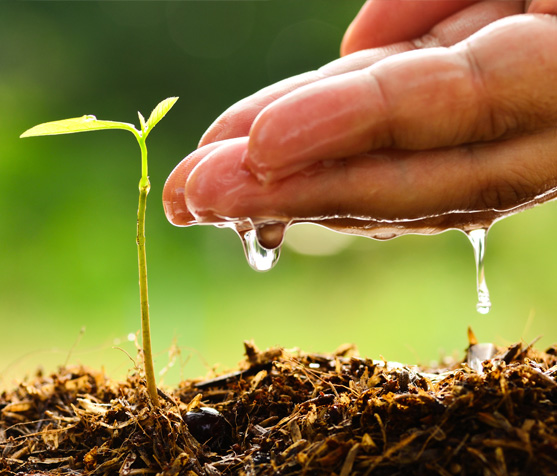
You’ll notice that kids learn better when outside because they are more engaged with their surroundings. They’ll pay attention to details they might not notice indoors — like how the wind moves through trees or how tall grass looks in different lighting conditions.
Outdoor and experiential learning education programs usually include activities like hiking, canoeing, or camping that encourage kids to explore nature and learn about ecosystems through hands-on experiences outside the classroom. Outdoor learning helps children understand the world around them in a deeper way. It allows them to learn about the importance of community, sustainability, and conservation.
It encourages creativity by providing opportunities for exploration and discovery in nature. It can lead to new ideas, inventions, and solutions using natural resources rather than manufactured ones (such as plastics). Outdoor activities are a great way for children to explore the environment around them. They can learn about nature, including plants, animals, and weather patterns; physical skills such as balance, coordination, and endurance; and social skills like cooperation, teamwork, and leadership.
Increased confidence in general ability to learn and personal problem-solving skills

Learning through experience can also provide opportunities for real-world problem-solving and hands-on application of knowledge. The connections between theory and practice are clear, which helps students learn how theory applies to their lives and careers.
In nature, there are no easy answers. You have to think outside the box because there are no boxes in nature — or at least none that we’ve built yet! It helps kids develop critical thinking skills, essential for success in college and career fields ranging from engineering to business administration to medicine.
Children gain confidence from outdoor and experiential learning experiences because they have an opportunity to try new things and succeed at them. It builds self-esteem and helps children feel good about themselves. This type of learning helps develop critical thinking skills because it encourages students to evaluate their thoughts and beliefs.
Conclusion
Although outdoor education is not a perfect solution to every learning challenge, some types of learning and experiences can not be achieved by traditional means. Children who engage in experiential learning are more likely to continue learning throughout their lives because they know what interests them.
It is because learning becomes part of the individual’s past experiences and contributes to the development of their self-identity and sense of belonging to the community—a sense that is often developed through participation in outdoor learning activities. Providing students with appropriately organized opportunities to explore the world around them can help lead students toward innovative real-world solutions to problem-solving.
For any queries related to parenting, schooling, or any student-related tips, click here to check out our latest blogs.






